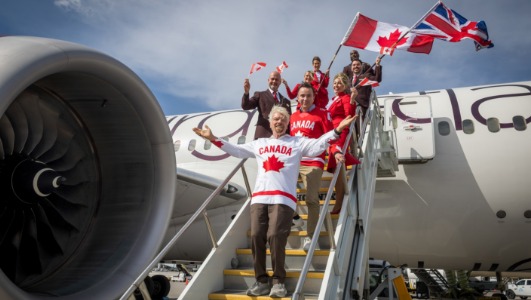An Open Letter To Agents From IATA

In an open letter to travel agents around the world, IATA’s director general and CEO, Alexandre de Juniac explains how the industry association is handling BSP during the ongoing COVID-19 crisis, as well as its position on vouchers versus refunds.
IATA’s boss writes in his letter:
“The global airline industry is going through its gravest crisis. The COVID-19 pandemic and resulting government- ordered border closings and mobility restrictions have brought air transport to a standstill. One-third of the global fleet is parked, and we estimate that revenue from passenger ticket sales will fall 44% this year compared to 2019. There simply is no precedent for what our members and you, our travel agent partners, are experiencing.”
“As the operator of industry financial settlement systems that in normal times process more than $1.25 billion in industry funds every day, IATA faces the enormous responsibility of maintaining the security and integrity of these systems during a period when far more cash is exiting than is coming in.”
He notes that:
“At the same time, we know that our members and business partners rely on us to recognize the extraordinary challenges they are facing and to show as much flexibility as possible under the circumstances. We are doing our best to meet these expectations without risking the viability of the systems that are the financial backbone of the industry.”
IATA’s de Juniac says that:
“For travel agents, this means we’re allowing settlements to be made a bit later, without penalties. While remittance periods have been kept in accordance with BSP Calendars, we are taking a flexible approach and preliminary figures confirm this, showing that default rates in 2020 are a bit below the year-ago period—despite the stresses on the system in 2020.”
“Further, we are allowing agents to continue selling—using secure methods—even when they are late with remittances.”
And he makes it clear that:
“We also recognize that in today’s environment, when it may be difficult to impossible to get audited financial statements, or arrange a financial guarantee, we are offering to extend deadlines for these statements by up to a month.
IATA continues to welcome your suggestions on how we can be more responsive in these areas.”
On the issue of vouchers versus refunds, de Juniac writes:
“However, on the issue of airlines withholding ticket refunds in the BSP, or issuing vouchers in lieu of refunds, I’m afraid that the message I have to deliver is not one that will provide comfort.”
“Our industry is experiencing a critical liquidity crisis. Most airlines are spending more cash in reimbursing their passengers than they receive in new booking revenues. We recently estimated the industry’s liability in this area at $35 billion.”
“In this context, airlines’ most urgent need is to keep their remaining liquidity to pay salaries and face their fixed costs. It is practically impossible for industry players to find sufficient financial means to keep the air travel value chain operating in the short time that airlines have before facing bankruptcy.”
And IATA’s director and CEO makes it clear that:
“… We believe the best answer for both airlines and travel agents is for regulators to ease requirements for cash refunds and allow airlines to issue vouchers instead.”
“These vouchers can be managed through the IATA Billing and Settlement Plan (BSP) using processes and procedures that already exist today. This would remove the pressure that is currently on agents to issue cash refunds at a time when airlines are making decisions based on their own need to preserve cash.”
And de Juniac continues:
“IATA is willing to engage in open and collaborative discussions with the travel agency community represented in the Passenger Agency Programme Global Joint Council to formulate a structure for these vouchers that will bring value for airlines, travel agents and consumers.”
He also credited a number of governments for the actions that they’ve taken to help airlines in recognition of the gravity of the current situation, stating:
“We are grateful that regulators in Canada, Colombia and the Netherlands have recognized the necessity of this approach and we hope others will do the same.”
“While I know that this is not the answer that you want to hear, it’s important that you understand that IATA is working hard to find a solution to this problem that will enable us to endure and move forward.”
And de Juniac concludes:
“People want to travel, for the horizons it broadens and the connections it enables and maintains. These are dark days for our industry, but we are resilient, and we will get through them, together.”
Go to www.iata.org for more.
Tags: COVID-19, IATA, Vouchers versus Refunds


